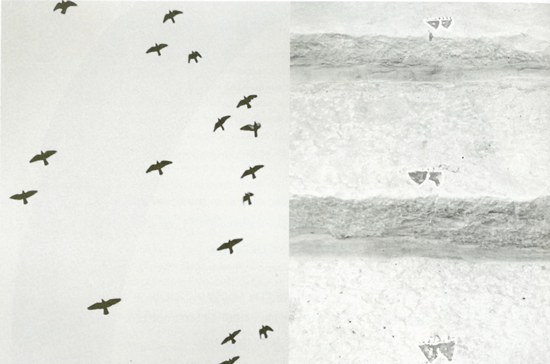All sentient beings without a single exception have buddha nature, from the dharmakaya buddha down to the tiniest insect. There is no real difference in the quality or size of this enlightened essence between individuals. However, buddhas and fully enlightened bodhisattvas have cut the movement of dualistic mind at the very beginning. That is how they are different from sentient beings. Buddhas and bodhisattvas’ expression of mind takes the form of compassionate activity. This activity, through emanations and re-emanations, appears in all samsaric realms in order to teach other beings.
Sentient beings, on the other hand, have fallen under the power of dualistic thinking. An ordinary person’s attention strays according to any movement of mind. Suddenly there is the confusion of believing in self and other, subject and object, and this situation goes on and on repeating itself endlessly. This is samsaric existence. The buddhas and bodhisattvas were successful in getting up on the dry land of enlightenment. But we sentient beings became bewildered, and are now in the unsuccessful, unsatisfactory state we all find ourselves in. We are still in the ocean of samsara; we have not yet gotten our heads fully out of the water. We have roamed about in one confused state of experience after the other, endlessly. At the same time, we haven’t lost our buddha nature. Our buddha nature is never separate from our minds for even a single instant. Though we are not apart from it we do not know it, and thus we wander in samsaric existence.
Now is the time to free ourselves from samsara. Unless we do it in this lifetime, it is not going to happen all by itself. We have to take care of ourselves. Right now we have the ability to receive teachings and practice the Dharma. Isn’t this the right time? Wouldn’t that be better than continuing to act like an animal, concentrating only on eating and sleeping and letting the time run out? Why not take your future into your own hands?
♦
From As It Is, vol. 1, ©1999 by Tulku Urgyen Rinpoche. Reprinted with permission of Rangjung Yeshe Publications.
Thank you for subscribing to Tricycle! As a nonprofit, we depend on readers like you to keep Buddhist teachings and practices widely available.
